The PhD students of the EUR
Camille ABRIC
(Doctoral contract 2023-2026)
Contact: Camille.Abric@etu.univ-paris1.fr
Ceramica incognita: modes of production and proto-urban phenomena in north-eastern Iran from the Late Neolithic to the Middle Bronze Age (3500-1800 BC)
For her doctoral research, conducted under the supervision of Pascal Butterlin (Paris 1 Panthéon-Sorbonne – UMR 7041 ArScAn), Camille Abric delves into the intricate connections between social dynamics and the evolution of ceramic manufacturing techniques within the early urban societies of Northeastern Iran. Her study aligns with Challenge 4 (Techniques and Innovation) of the EUR ArChal.
Between the end of the Chalcolithic period (3500 BCE) and the end of the Middle Bronze Age (1800 BCE), societies in Northeastern Iran undergo significant transformations, visibly reflected in both their architecture and material culture. The primary focus is on scrutinising the ceramic traditions that accompany these changes, acting as privileged witnesses of these societal shifts.
Taking into consideration this category of material, Camille Abric’s PhD thesis proposes an in-depth analysis of the nature and driving forces behind these transformations. Specifically, a monochrome grey pottery with a polished surface, sometimes adorned with geometric patterns, commonly referred to as Burnished Grey Ware (BGW), gradually supplants the characteristic black-painted pottery on red paste from the Chalcolithic period.
The objective is to question, analyse, and model the potential relationship between the development of this new ceramic production, the disappearance of painted pottery, and the emergence of a more globally labelled “proto-urban” phenomenon in the region. This research is particularly original as the region, despite recent studies, remains largely unknown to archaeologists. However, the application of numerous interdisciplinary analysis methods (anthropology of techniques, typology, and new technologies), based on ceramic collections from ancient excavations and unpublished excavation archives, helps fill this historiographical gap.
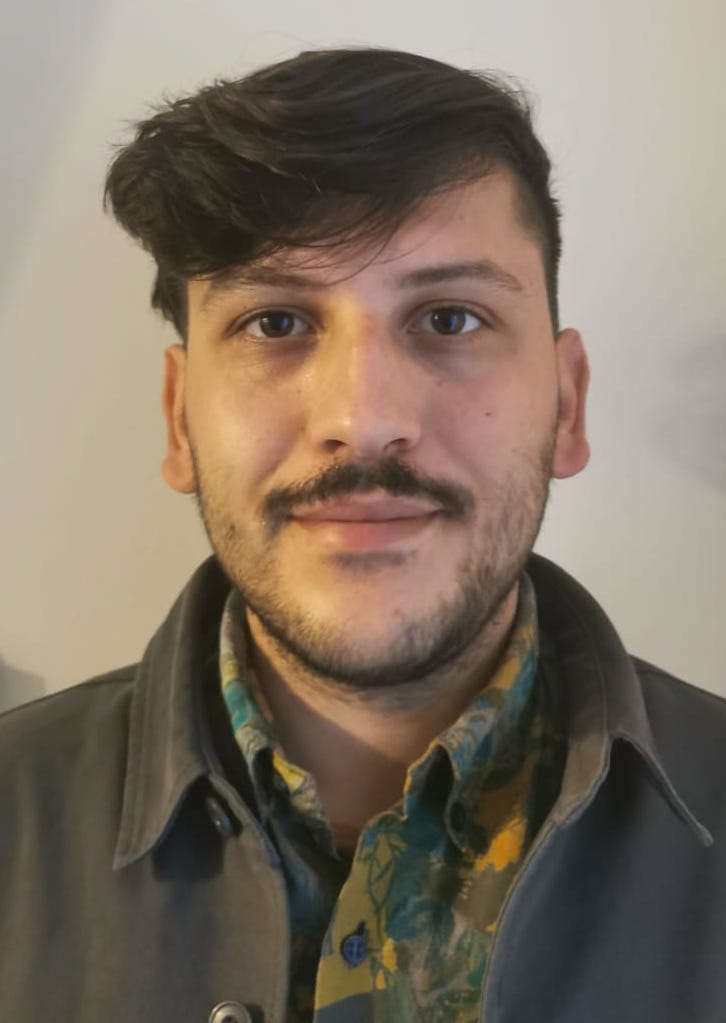
Alberto BRUTTO
(Doctoral contract 2021-2024)
Contact: Alberto.Brutto@etu.univ-paris1.fr
Living in power. The concrete and symbolic construction of the domestic space of the elites in pre-Roman Italy (9th-4th centuries BC)
Archaeologist with a Franco-Italian background, Alberto Brutto is currently working on a PhD thesis, under the joint supervision of the Universities of Paris 1 and Bologna, under the direction of Olivier de Cazanove (UMR 7041- ArScAn) and Elisabetta Govi (University of Bologna – UNIBO). His research topic, which fits the challenge 2 (Power and inequalities) of the EUR, focuses on a concrete and symbolic reading of the domestic architecture of pre-Roman Italy, in order to identify the Etruscan and Italic elites ways of living, and more generally, the socio-cultural aspects transmitted through the architectural language. Furthermore, still in the perspective of his PhD research and the challenge 4 (Techniques and innovation)of the EUR, he is interested in raw earth construction techniques, using an ethnoarchaeological approach while paying particular attention to contemporary issues related to an eco-responsible architecture.
Regarding his field activities, Alberto has participated in several archaeological missions, in Italy, in the Etruscan towns of Kainua-Marzabotto and Spina, in the Lucanian city of Civita di Tricarico and in the Oenotrian site of Francavilla Marittima, and in France, in the Gallo-Roman sites of Gisacum (Vieil-Évreux) and Les Crassées (Saint-Dizier).
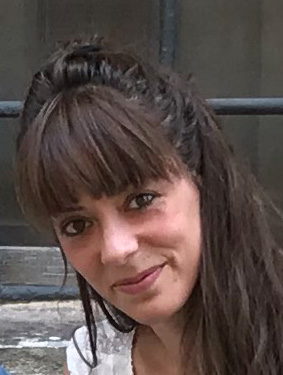
Aura FOSSATI
(Doctoral contract 2022-2025)
Contact: aura.fossati@etu.univ-paris1.fr
Destruction dynamics of Mesoamerican archaeological heritage: regional characterisation of looting and comparative analysis for a global challenge
Aura Fossati is specialised in archeology of the Gulf of Mexico, attached to UMR 8096 ArchAm, Archéologie des Amériques, of the University Paris 1 Panthéon-Sorbonne. She also is the co-director of the Italian Archaeological Mission in Mexico. Aura is currently doing her PhD under the co-supervision of Brigitte Faugère (UMR 8096 – ArchAm) and Pascal Butterlin (UMR 7041 – ArScAn). Her work focuses on the protection of cultural heritage in fragile contexts and her research topics especially address the issues related to the illicit trafficking of cultural property, archaeological heritage and community development, heritage geopolitics and the contribution of science diplomacy in these fields. Thus, her project is part of the EUR ArChal’s challenge 3 (Conflicts, mobilities and migrations) and aims to better understand the dynamics of anthropogenic destructions, in particular looting, of archaeological remains in Mexico and Guatemala. Through an archaeological study of the stigmata and pathologies affecting this heritage and its environment, this work also aims to provide information on their evolution in time and space. Moreover, a comparative analysis with case studies in the Middle East will enable her to identify features specific to the different contexts, as well as similarities and interconnections linked to global patterns.
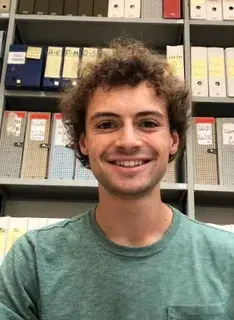
Léonard GOURNAY
(Doctoral contract 2024-2027)
Contact: Leonard.Gournay@univ-paris1.fr
Study of wood resources in northern Italy during the Iron Age: the use of archaeodendrometry for dating, interpreting wooden structures and for the study of the environment in the Po Delta.
As part of his doctoral research, Léonard Gournay is doing a joint thesis with the University of Bologna. His work, supervised by Stéphane Bourdin (Université Paris 1 Panthéon-Sorbonne - UMR 7041, ArScAn) and Andrea Gaucci (Università di Bologna), focuses on wood as a fundamental material in the analysis of ancient structures, through dendrochronological, techno-morphological and environmental analyses, in line with Challenge 1 (Environment and climate change) and Challenge 4 (Techniques and Innovations) of the EUR ArChal.
Wood is an extremely relevant material for archaeological study. It can be used to date absolutely the felling of a tree with near-perfect precision (dendrochronology), stores a wealth of information that is visible on a macroscopic scale as soon as the wood is worked (techno-morphology), and makes it possible to consider environmental variations and the forest coverage of a given climatic area (xylology).
By focusing on this rare organic material — because not often preserved — which has been little studied in the contexts of northern Italy, this research aims to contribute to dendrological research in France and northern Italy and to promote methodological dialogue between European countries.
Taking advantage of the many timbers discovered at the Etruscan site of Spina (province of Comacchio, IT) during the 2023 and 2024 excavation campaigns, as well as those from the San Basilio site, the aim will be to use as many samples as possible to create one or more dendrochronological floating curves for the Iron Age, calibrating them using the wiggle-matching method. These curves will be added to those already existing for the region, with a view to eventually creating a master curve (one that is continuous from the present day to past eras). At the same time, the purpose is to make light on the context of the Spina excavation, which since 2023 has uncovered a hydraulic infrastructure made up of numerous rows of piles and spans. Using dendrology, which gathers all the methods used to analyse wood, we want to provide an understanding of this unique context, from the internal chronology of the Spina bank to the methods used by the Etruscans to create this infrastructure. Finally, the Po delta is still rich in a tradition of woodworking linked to the management of hydrographic risks, and we will assess through an ethnographic scope the potential relationship between modern methods of managing climatic hazards and the hydraulic technologies of the past, in a region greatly threatened by climate change and rising waters.
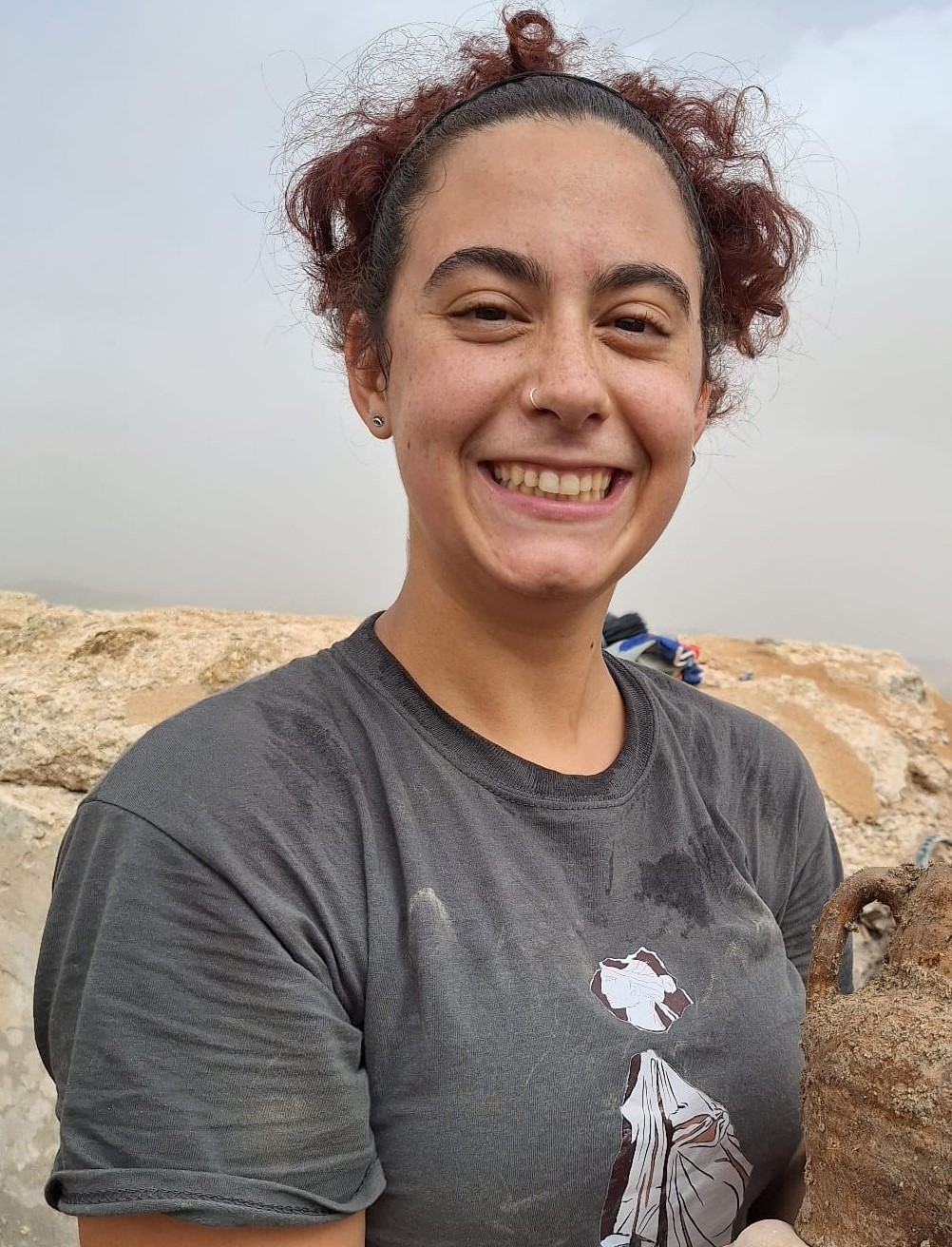
Belén HERNAEZ MARTIN
(Doctoral contract: 2025 - 2028)
Contact : bhernaez@ucm.es / Belen.Hernaez-Martin@etu.univ-paris1.fr
Archaeology, Religion and Colonialism: Analysis of the Archaeological Work of Missionaries in the Maghreb and its Repercussions.
An art historian and archaeologist by training, Belén Hernáez Martín specialises in historiography of Archaeology. Her PhD is co-directed by Alain Duplouy (Université Paris 1 Panthéon-Sorbonne - UMR 8215) and Jorge García Sánchez (Universidad Complutense de Madrid – Arqueología Africana), and it focuses on the archaeological interventions developed by European catholic missionaries in the Maghreb between the 19th and 20th centuries and the impact that it has had on the modern-day discipline. This research is aligned with the second (power and inequalities) and third challenges (conflicts, mobilities and migrations) set by the EUR ArChal, as it intends to shed light on different issues related to the colonial past and its heritage and long-lasting effects.
The professionalisation of Archaeology and the Western colonisation of North Africa developed side by side, becoming deeply entrenched: this thesis aims to offer an integral view of the archaeological work of a particular group that became an agent in both processes, religious missionaries. These comprise both congregations, such as the apostolic society of the White Fathers, created in Algeria in 1868 under French colonial rule, and individuals, whose understanding of archaeology included interventions, collecting practices and publications amongst others.
Transcending individuals, chronologies and locations, the general aim of this research is to explore and analyse (bibliometric and network analyses) the aforementioned archaeological work to identify patterns in it, while, at the same time, recentring the agency of the local populations through displaced archival material. Equally important for this thesis is the inclusion of a multivocal perspective from present-day professionals that offers new and different interpretations of the phenomenon. Acknowledging the complex rapport between Archaeology, religion and colonialism offers a more critical, better understanding of the origins of the discipline in the region and its implications.
Yunus KAVRUK
(Doctoral contract 2023-2026)
Contact: Yunus.Kavruk@etu.univ-paris1.fr
Turkey at the crossroads of human settlements in the Middle Palaeolithic (between 300,000 and 40,000 years ago): Application of new approaches to the study of old and new lithic assemblages
Yunus Kavruk's PhD research is directed by Boris Valentin and co-supervised by Roxane Rocca (UMR 8068 TEMPS and Université Paris 1). In terms of its approach and subject matter, it fits in with EUR Challenges 4 (Techniques and Innovation) and 3 (Conflicts, Mobilities and Migrations).
Turkey's geographical location at the crossroads of three continents has made it an area of migration and interaction throughout human history. According to the Out of Africa model, the current scientific paradigm for global Palaeolithic settlements, Turkey was the passageway to/from Europe for at least three different human species of the genus Homo (erectus, neanderthalensis, sapiens), whose territorial occupation specifics remain poorly understood. Since this model is based mainly on biological data, it is ill-equipped for exploring the cultural aspect of settlement. However, the study of lithic artefacts (95% of the artefacts found in Palaeolithic sites) has the potential to reveal a part of the technical system of these very old societies that occupied the territory of present-day Turkey. Thanks to the application of a renewed approach (techno-functional analysis) within lithic technology, this research aims to contribute to our understanding of the cultural evolution of Neanderthal societies (Middle Palaeolithic, 300 ka - 40 ka) through the study of lithic artefacts.
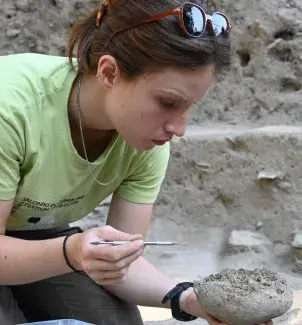
Evi KOURTI
(Doctoral contract 2024-2027)
Contact : Evanthia-stefania.Kourti@etu.univ-paris1.fr
Micro-Botanical Remains in the Strymon Valley and Surrounding Areas: Exploration of Plant Transformation in the Neolithic (6th–5th Millennium BC)
Evanthia-Stefania (Evi) Kourti is an archaeologist trained in Greece and France, specializing in the Neolithic archaeology of Northern Greece, with a focus on micro-botanical residue analysis. Her doctoral research, conducted under the supervision of Zoï Tsirtsoni (UMR 7041-ArScAn) and Aline Garnier (UMR 8591-LGP), explores the impact of a climatic crisis on the subsistence strategies of the population in Eastern Macedonia region.
This project, combining a multi-proxy methodological approach with a targeted study of regional sites, is part of challenge 1 (Environment and Climate Change) of the EUR ArChal program. Evi's work aims to shed light on and enhance our understanding of plant use in the settlements of the Strymon Valley, a region that facilitated the spread of Neolithization in Central Europe and was largely abandoned following a climatic crisis at the end of the 5th millennium BC. However, some groups persevered, possibly employing subsistence techniques adapted to a changing environment. Based on ethnographic observations made during her master's degree, her hypothesis suggests that plants interpreted in archaeobotanical studies as weeds or 'wild' may have been consumed to supplement scarce food resources or exploited for their utilitarian properties.
This research incorporates combined analyses of micro-remains (starch grains and phytoliths) and compares them with taphonomic experiments and the contemporary flora of the Strymon Valley, while also considering contemporary issues related to environmental management and the ecological challenges of the region.
Evi has participated in several archaeological missions in Greece, Bulgaria, Albania, and Italy. She is a member of the excavation teams at Dikili Tash (Kavala, Greece) and Ilinden (Hadjidimovo, Bulgaria), which are part of her thesis corpus. She trained by studying material from the site of Promachon-Topolnitsa, completed internships at the Stratigraphic Museum of Knossos and the Ephorate of Paleoanthropology and Speleology in Athens, and worked on the Archaeology in Greece Online project at the British School at Athens.
Eva LEFEVRE
(Doctoral contract 2023-2026)
Contact : eva.lefevre@etu.univ-paris1.fr
Domestic and palatial architecture in Assyrian urban centers during the Late Bronze and Iron Ages (15th-17th centuries B.C.)
Specialised in Ancient Oriental archaeology, I'm doing my thesis under the supervision of Pascal Butterlin (UMR 7041 - ArScAn) and the tutorship of Aline Tenu (UMR 7041 - ArScAn). My research is part of EUR's Challenge 2 (Power and Inequality), and focuses on a cross-analysis of the architecture of Middle-Assyrian and Late-Assyrian houses and palaces.
In the 14th century B.C., Assyria broke free from the Mittani and became a real power in Upper Mesopotamia. The empire extended its hold over many territories, becoming a major power in the Near East. From the advent of Aššurnaṣirpal II (883-859) to the fall of Nineveh in 612, the Neo-Assyrian empire saw an expansion of its territory, covering the Levantine coast, the north of present-day Syria, the Fertile Crescent and the southern mountains of Anatolia. The expansion of the empire was accompanied by a increase in urban planning, coupled with an multiplication of palatial buildings, both in royal cities and in provincial government centres. This phenomenon is linked to a new organisation of imperial power, whose complex, highly hierarchical structure appears to have emerged during the Middle-Assyrian period.
The aim of this subject is to explore the structuring of architectural spaces in relation to Assyrian social and political organisation. Having evolved as two compartmentalised fields, with their own issues, methodologies and specialists, there is no in-depth research on the link between domestic and palatial architecture in Mesopotamia. However, a comparative study of Neo-Assyrian houses and palaces shows that, despite their differences, there are similarities that reflect a distinctly Assyrian way of organising residential space. The hierarchy between buildings, a complex issue in a world where the boundary between palace and house sometimes seems to dissolve, is a key point that I propose to study. Standardisation and control of the sumptuary in monumental buildings, socio-spatial segregation in Assyrian cities, the evolution of an Assyrian mode of occupying space and the relationship with other architectural traditions are all key elements in my research. While the organisation of building ground plans will obviously be central to my work (typological studies, metrics, spatial syntax, graphs, corpus of comparisons), I also understand architectural space as a volume (3D modelling and visibility studies, 3D GIS): issues relating to elevations, floors and the sensory perception of space will receive particular attention.
Valentin LOESCHER
(Doctoral contract 2021-2024)
Contact: Valentin.Loescher@etu.univ-paris1.fr
Woodworking in Minoan Crete: from stone to metal (3200-1100 B.C.). Innovation, transfer and continuity in tool equipment.
Valentin Loescher’s research work is part of challenge 4 (Techniques and innovation) of the EUR. His PhD, supervised by Haris Procopiou (UMR 7041 – ArScAn), explores issues related to the study of woodworking, and especially how to analyse this material which is very rarely preserved among archaeological remains. Therefore, his study approach is mainly based on the examination of the tools, mainly those from deposits of metal objects, such as “carpenter’s hoards”, which are found in settlements of Crete during the Bronze Age. These toolkits have been assigned to woodworking based on their typology. However, these tools are versatile and could have been used for shaping techniques common to several materials (wood, stone, bone). Therefore, it appears important to re-evaluate the functional attribution of these metal tool deposits through an approach associating the analysis of the use-wear traces on the tools analysis and experimental reconstitutions of the ancient know-how. Two groups of technical traces will be used as references, which will be created and compared: one from the study of archaeological objects in museums, and the second by experimental reproductions on different materials. Beyond the scale of the tools, the craftsmen and their techniques are apprehended via four axes: technical innovation and the new possibilities induced by bronze; the acquisition of wood material; the manufacture of wood products; the identity and organisation of craftspeople (Linear B texts, workspaces, contemporary iconography in Egypt and Levant).
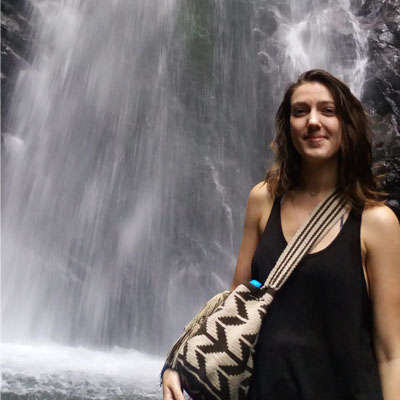
Clémentine MARTAL
(Doctoral contract 2021-2024)
Contact: clementine.martal@gmail.com / Clementine.Martal@etu.univ-paris1.fr
Architectural study of pre-Hispanic pyramids (1250-1525 A.D.) in the north-Andean region of Ecuador using a geoethnoarchaeological approach
Clémentine Martal is doing her PhD under the direction of Nicolas Goepfert (UMR 8096 – ArchAm) and the scientific supervision of Marylise Onfray (UMR 7041 – ArScAn), Valentina Villa (UMR 7264 – CEPAM) and Julia Wattez (UMR 5140 – ASM). Ecuador, crossed by the Andes Mountains, is characterised by active volcanism and earthquakes that frequently cause significant material and human damages in the country. In this context, where the colonial and contemporary buildings collapse, the prehispanic pyramids present in number in the Ecuadorian north-Andean region do not seem affected by seismic phenomenons. Those constructions, however, are being affected daily by human activity (urbanism, agriculture, looting, etc.). Through the geo-ethnoarchaeological approach to study those the remains, Clémentine’s work is part of the EUR challenge 4 (Techniques and innovation). Her research seeks to understand the construction process and techniques developed by the Caras to build these monuments. The diachronic study of this architecture will allow us to identify possible transfers of local intergenerational skills. Finally, this research is led by the assumption that these ancient innovative methods could, following adjustments, contribute to the design of an earthquake-resistant architecture.
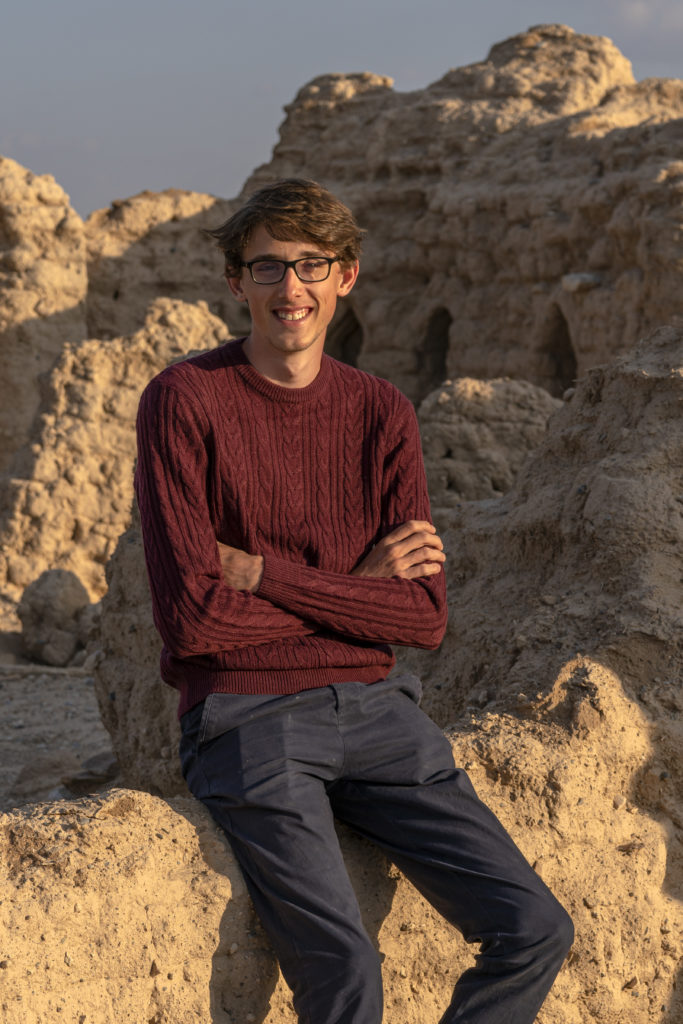
Théo MESPOULET
(Doctoral contract 2022-2025)
Contacts: theomespoulet@gmail.com / perso.univ-paris1.fr/tmespoulet
Streets, squares and circulation systems in settlements of the ancient Near East from Neolithic to Iron Age: architecture, network and urban planning
Théo Mespoulet’s research, supervised by Pascal Butterlin (UMR 7041 ArScAn), focuses on circulation systems in the ancient Near East and is part of the EUR’s Challenge 4 (Technologies and innovation).
Streets and squares are structuring elements of the urban landscape and reflect a wide range of innovations used for their architectural implementation. The construction of these roads responds to two technical constraints: the circulation of animals and humans, and the evacuation of water towards the exterior of settlements. Théo’s work focuses on the genesis of these streets in the Neolithic period and their morphological and architectural evolution until the Iron Age, with the successive appearance of towns (4th millennium), wheels (beginning of the 3rd millennium), and then the large imperial capitals.
In this study, streets and squares are considered in a multiscalar manner: the street, the evolution of this street, and its functioning as a network within the town or village. Furthermore, he studies the techniques and gestures used in the construction of unpaved streets through an ethnoarchaeological study in the Sultanate of Oman. Through the systematic study of traffic routes, the aim is to understand the long history of the origins of the street and its installations.
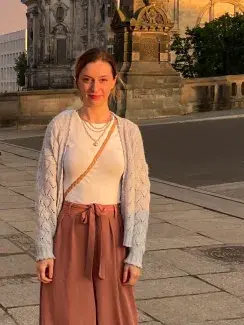
Vinca MICHAELIS
(Doctoral contract 2024-2027)
Contact: vinca.michaelis@gmail.com / Vinca.Michaelis@etu.univ-paris1.fr
Egyptological collections and European politics – How acquisition policies of European museums were influenced by political events between 1882 and 1918
As an Egyptologist with a focus on provenance research, I am conducting my PhD thesis in Berlin and Paris under the supervision of Jochem Kahl (FU Berlin) and Alain Duplouy (Paris 1 - UMR 8215). My thesis focuses on analysing how political events, particularly between the British occupation of Egypt in 1882 and the end of World War I in 1918, influenced the acquisition strategies of major Egyptological museums in Europe. Thus, it is part of EUR's Challenge 2 (Power and Inequality), exploring how the colonial context shaped the museum collections we see today. In addition, it is part of Challenge 3 (Conflict, Mobilities and Migrations), by showing what we can learn from past conflicts today and how this then influences current debates around museum collections.
During the 19th century and the beginning of the 20th century, Egypt's legal and political landscape underwent significant changes, especially under British colonial rule. These shifts had a profound impact on the way artefacts were collected, excavated, exported, and displayed in European museums, leading to a substantial expansion of Egyptological collections. By examining the acquisition records of the biggest Egyptological museums in Europe, I aim to identify patterns in collection growth and the strategies employed by these institutions.
This thesis seeks to bridge a gap in current research, which has often focused on individual objects or specific collection segments. Instead, my work takes a broader, quantitative approach, analysing how external political factors influenced the overall collection strategies of these museums. The goal is to highlight the complex interplay between politics, colonialism, and the expansion of Egyptological collections, providing a more transparent and critical view of museum histories.
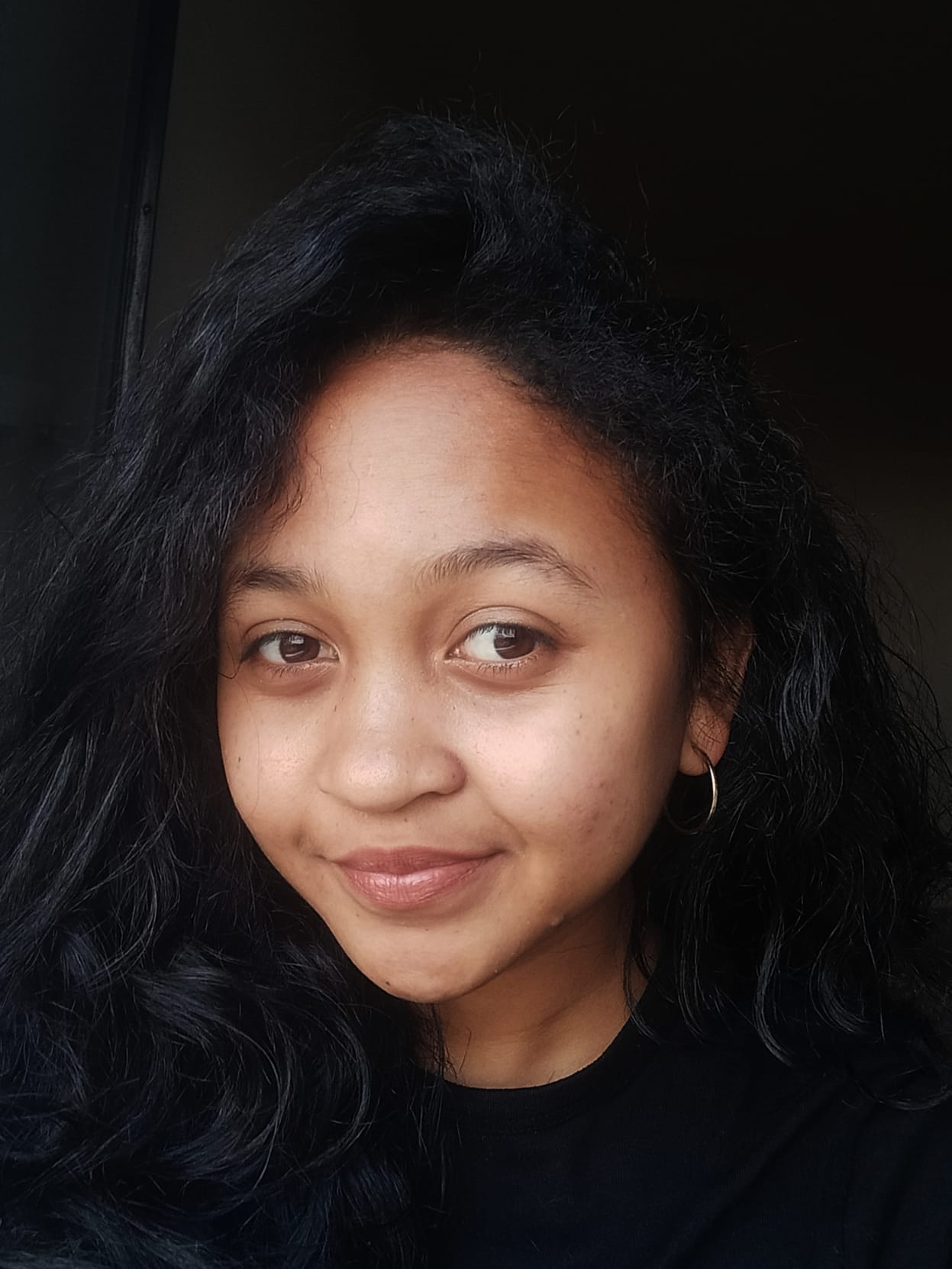
Soafara RAKOTOMAHANINA
(Doctoral contract 2025-2028)
Contact : Soafara.Rakotomahanina@etu.univ-paris1.fr
Archaeology of mobility and heritage dynamics in coastal sites in north-eastern Madagascar (13th–17th centuries): spatial analysis and participatory research
Soafara is pursuing a joint PhD between Leiden University and the Université Paris 1 Panthéon-Sorbonne, under the co-supervision of François Giligny (Université Paris 1 Panthéon-Sorbonne) and Mirjam De Bruijn (Leiden University).
Her research focuses on the emergence of early urban forms in Madagascar between the 13th and 17th centuries, within the broader context of transcontinental exchanges across the Indian Ocean.
She pays particular attention to the city of Vohemar, located in the northeastern region of Madagascar (SAVA).
Her work aims to understand the effects of internal and transoceanic mobilities on the social and territorial structuring of Vohemar and its surrounding region. By combining archaeological and environmental data, oral traditions, and local knowledge, she seeks to reconstruct migratory trajectories. This approach places her research within Challenge 3 of the EUR (Conflicts, Mobility, and Migrations).
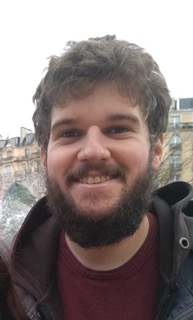
Alexandre VALETTE
(Docoral contract 2022-2025)
Contact: Alexandre.Valette@etu.univ-paris1.fr
Mycenaean road systems in mainland Greece (17th-11th c. BC)
The Mycenaeans had a dense road system that consisted of a primary network (paved and constructed by manipulation of the terrain) and secondary dirt roads that can shed light on the layout of present-day roads in Greece. Near Mycenae, vestiges of these roads with debated uses are still preserved and have been studied by several researchers, constituting a dense historiography for this sector, but still to be completed for other regions. The dating of the roads makes it possible to consider a study of the emergence of the Mycenaean civilization at the end of the Bronze Age, while adopting a look at their survivals and thus showing their link with modern routes. The well-preserved stretches of roads and bridges discovered in many parts of mainland Greece provide solid material data and raise questions about their environment and its changes through time. This PhD thesis, placed under the co-direction of Haris Procopiou and Maia Pomadere (UMR 7041 – ArScAn), is part of challenges 3 (Conflicts, mobility and migration) and 4 (Techniques and innovation) of the EUR. Its objective is to draw up a complete inventory of the Mycenaean road system and its innovations, looking for the links between the development of the early establishment of road networks.
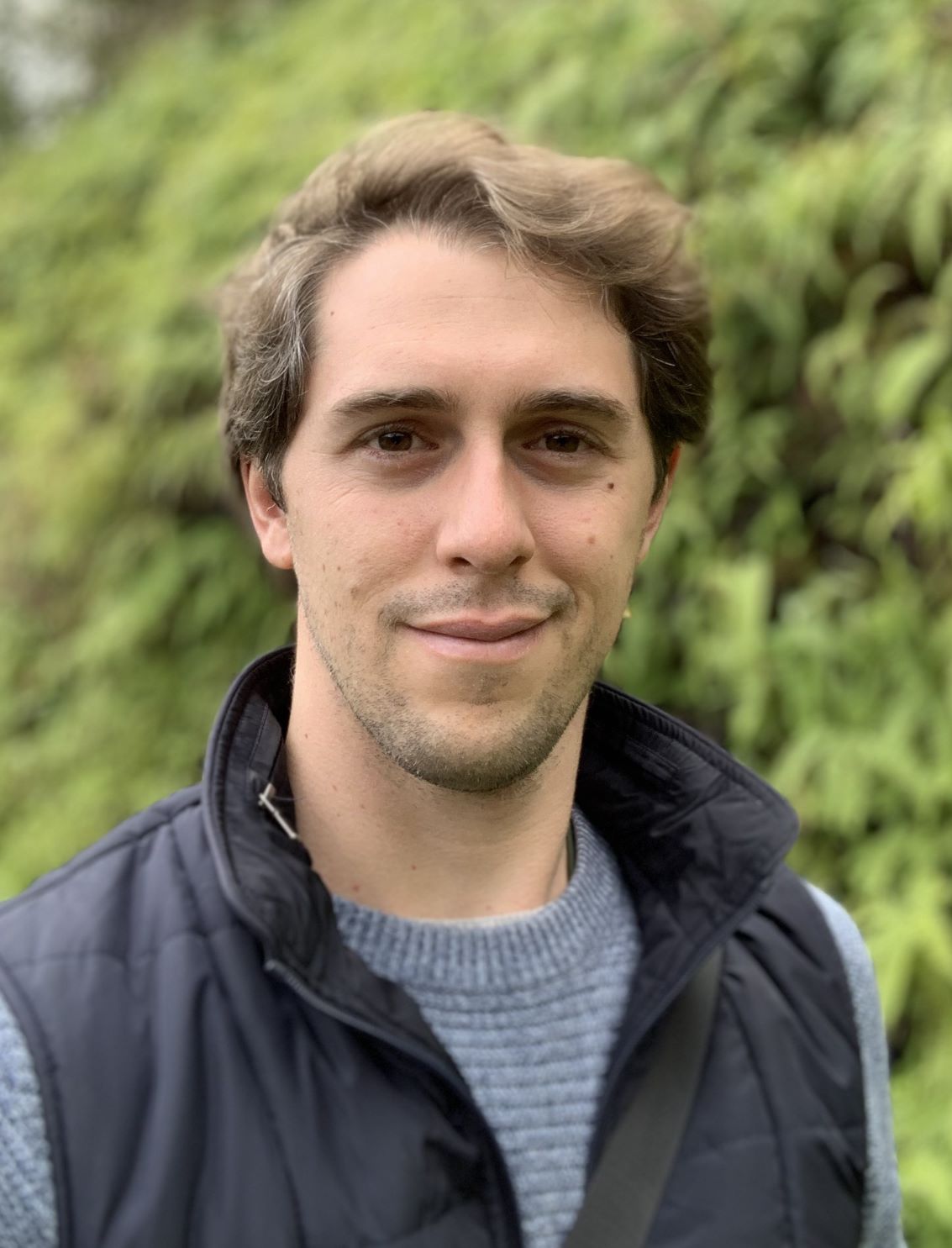
Erik Zanotti
(Doctoral contract 2025 – 2028)
Contact : erik.zanotti2@unibo.it / Erik.Zanotti@etu.univ-paris1.fr
The Northern Apennines during the Bronze Age
Settlement dynamics and transformations of the mountain landscape between 2.300 and 925 BCE
As part of his doctoral research, Erik Zanotti is conducting a PhD research in joint supervision with the University of Bologna, under the direction of François Giligny (Université Paris 1 Panthéon-Sorbonne – UMR 8215, Trajectoires) and Claudio Cavazzuti (Università di Bologna). This work addresses Challenge 1 (Environment and Climate Change), Challenge 2 (Power and Inequalities), and Challenge 4 (Technologies and Innovation) of the EUR ArChal program.
His research focuses on the settlement dynamics and landscape transformations in the Northern Apennines between 2.300 and 925 BCE, a period marked by major social, environmental, and technological changes.
By combining archaeology, geoarchaeology, and spatial analysis, the project aims to understand how Bronze Age communities exploited, organized, and reshaped mountain territories through innovations such as terrace structures, defensive systems, and, more generally, slope management techniques.
Methodologically, the thesis relies on the creation of a spatial database integrating more than 300 known sites, complemented by field surveys including drone-based LiDAR surveys and geoarchaeological coring, as well as geostatistical modelling to analyze settlement patterns, mobility, and resource exploitation.
The excavations at Monte della Croce (province of Bologna, Italy) and Campo Pianelli (province of Reggio Emilia, Italy), in which Erik is actively involved in the coordination on the field, serve as a key laboratory for studying forms of habitation and modes of environmental adaptation.
By repositioning mountain areas at the heart of the cultural and economic exchanges of protohistoric Italy, this research proposes a new reading of territorial hierarchies and power relations during the Bronze Age, while exploring the contemporary relevance of ancient technical knowledge in the face of climate challenges.
By highlighting the continuity between ancient slope-stabilization practices and modern risk-prevention strategies, it opens the way for applied reflection on the sustainable management of mountain environments. Through its multidisciplinary and comparative approach, this research illustrates yet another example on how archaeological heritage can inspire innovative solutions for the future.